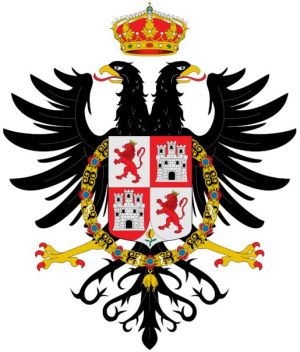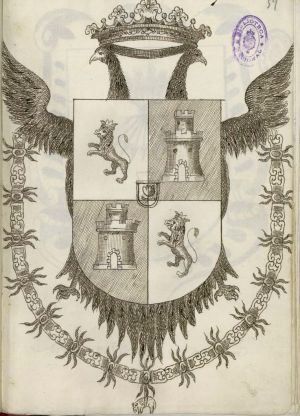Tunja: Difference between revisions
Jump to navigation
Jump to search
Knorrepoes (talk | contribs) m (Text replacement - "===Official blazon=== ===Origin/meaning===" to "{| class="wikitable" |+Official blazon |- |'''Spanish''' | (wanted) |- |'''English''' | |} ===Origin/meaning=== ") |
Knorrepoes (talk | contribs) m (Text replacement - "{| class="wikitable"↵|+Official blazon↵|-↵|'''Spanish'''↵| (wanted)↵|-↵|'''English''' ↵| ↵|}" to "{| class="wikitable" |+Official blazon |- |'''Spanish''' | blazon wanted |- |'''English''' | blazon wanted |}") |
||
| Line 11: | Line 11: | ||
|- | |- | ||
|'''Spanish''' | |'''Spanish''' | ||
| | | blazon wanted | ||
|- | |- | ||
|'''English''' | |'''English''' | ||
| | | blazon wanted | ||
|} | |} | ||
Revision as of 08:48, 4 August 2023
| Heraldry of the World Heráldica del mundo |
| Colombian heraldry portal Heraldica de Colombia |
|
TUNJA
Department : Boyacá
| Spanish | blazon wanted |
| English | blazon wanted |
Origin/meaning
The arms were granted in the 16th century by Emperor Charles V of Spain and the Holy Roman Empire, and show a simplified version of the Spanish arms at the time, quartered the arms of Castille and Leon, with the Imperial eagle behind the shield. The chain is that of the order of the golden fleece.
| The arms in a manuscript from 1767 |
Contact and Support
Partners:
Your logo here ?
Contact us
© since 1995, Heraldry of the World, Ralf Hartemink 
Index of the site
Literature : Image and information obtained by mail














